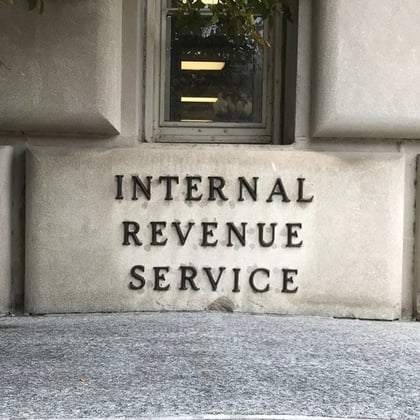What You Need to Know
- Since 2010, the IRS budget has fallen by 20% in inflation-adjusted dollars, according to the American Council for Capital Formation.
- Distributing three rounds of stimulus checks took precedence over other IRS duties.
- Cutting the IRS' budget has led to an increased tax gap, the group says.
As the Internal Revenue Service is inundated with millions of tax returns as well as a “continually increasing mission scope” of implementing new tax laws and dispersing stimulus payments, the agency’s budget has been in freefall, a new report by a market-oriented think tank warns.
Since 2010, the IRS budget has fallen by 20% in inflation-adjusted dollars, resulting in the elimination of 22% of its staff, according to a new report by the American Council for Capital Formation.
As millions of Americans filed tax returns last week, the IRS finds itself “strained under continued decreasing budgets and eliminated staff,” the report states.
“Congress should ensure that the agency is adequately funded to perform its core duties effectively and think carefully before assigning additional tasks to an overworked agency without considering the ramifications for revenue collection and taxpayer service,” said ACCF Chief Economist Pinar Çebi Wilber, in releasing the report.
COVID-19 and the additional workload that came with three stimulus packages have cast a spotlight on the IRS’ struggles in numerous areas, the report states, including:
- Revenue Collection, Enforcement and the Tax Gap: In line with budget cuts, the chances of being audited has decreased, increasing the tax gap (the difference between the tax liability for a given tax year and the amount that is paid) and reducing revenues the agency collects.
- Taxpayer Services: The services provided by the IRS, such as answering calls and emails and other means of taxpayer interaction have been declining. These services are especially important to help taxpayers to navigate the complex tax code and catch mistakes before returns are submitted.
- Operations Support and Business Systems Modernization: The IRS’ outdated information technology system has been a cause for a concern in light of increasing e-filing, wider data collection and security gaps that make the whole system susceptible to cyberattacks.
The IRS, the report notes, was tasked with distributing three rounds of stimulus checks to taxpayers. “This herculean task, in some sense, took precedent over the IRS’ other duties, creating problems for some taxpayers as outlined by the National Taxpayer Advocate,” the report states.









 May 24, 2021 at 10:09 PM
May 24, 2021 at 10:09 PM










